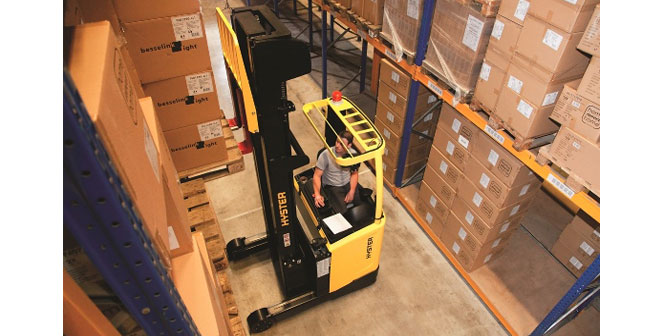
Briggs - As many industries, particularly retail and logistics, prepare for the busiest time of the year, businesses are being reminded not to leave anything to chance when it comes to preparing for the seasonal rush.
In the run up to Christmas, firms that rely on materials handling equipment can be faced with a wide range of challenges that have the potential to impact on both health and safety and productivity.
A specialist in equipment solutions and engineering services, Briggs Equipment is drawing on many years' experience in helping customers meet the increasing demands of the festive season without incurring unnecessary costs.
Allan Parsons, National Rental Manager at Briggs Equipment, explained: "We've carried out research which has shown that a sudden increase in workload can lead to a disproportionate increase in accidents involving forklift operators, whether the firms involved are retailers stocking up for Christmas or agricultural producers preparing to harvest crops.
"Although improvements have been made in recent years, and we've helped a lot of firms improve their practices, there is a lot of anecdotal evidence out there of firms risking both health and safety and their bottom line by failing to prepare properly."
According to Allan, one of the reasons for this could be the use of temporary or agency workers during peak periods. These short-term staff may not be completely familiar with their new employer's health and safety procedures and may also be working in an unfamiliar environment. Another factor could be the temptation amongst more experienced staff to take procedural ‘short cuts' to meet targets.
"However the most common problem we see, is businesses underestimating the amount of materials handling equipment they need and the suitability of their existing fleet to cope with additional demand," he said.
"It's vital that the fleet is ‘up to the job'. Trucks and equipment that may be perfectly adequate for most of the year could be pushed beyond their limit, which increases the risk of breakdowns and accidents."
To help business meet these challenges, Allan has put together these six top tips that will help firms avoid unexpected costs in the run up to Christmas.
If you haven't done so already, carry out a thorough review of your current materials handling capability. Trucks can be damaged if they are used for loads they are not designed to carry and health and safety could be compromised.
Don't leave it late before making any decisions. By planning ahead you will be able to secure the most appropriate equipment for the task at hand.
Ensure you have enough staff and equipment to cope safely with demand. Just as machines can be pushed beyond their limit, so can people.
Make sure that all temporary staff are fully familiar with both the work environment and the equipment they are using, perhaps by introducing a thorough induction process if one is not already in place.
Hold a brief workshop or seminar to remind longer-serving staff of their obligations. This is also a good opportunity to find out, first hand, from operators of any potential problems.
Be prepared for the unexpected, keep one eye on the forecasts and have plans in place to deal with bad weather, including snow! Ahead of the winter also check the operating environment for hazards such as cracks and potholes and repair where necessary as they can be even more dangerous during busy periods and when bad weather strikes.
Allan added: "At this time of year, it really does make sense to take stock of your fleet's capabilities and see if the trucks themselves are up to the tasks ahead. Bolstering the fleet through short term hire, combined with effective operator training, can be a cost-effective way of ensuring that the busiest period of the year remains a profitable one without the upset of unexpected repair bills or accidents."
Briggs offers advice on meeting the increasing demands of the festive season without incurring unnecessary costs.